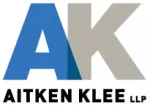In Nova Chemicals v. The Dow Chemical Company et al., the Federal Court of Appeal dismissed Nova's appeal of the order requiring it to pay $6.5 million in costs to Dow.
Nova and Dow both manufacture polyethylene products. Dow successfully brought an action against Nova in relation to Dow's Canadian Patent No. 2,160,705 and Nova's SURPASS food packaging product (see our previous posts here and here). Justice O'Keefe issued a lump sum costs award of $6.5 million, including $2.9 million for legal fees and $3.6 million for disbursements (see our previous post here). Nova appealed the costs decision.
On appeal, Nova took issue with the fact the Justice O'Keefe awarded an amount for legal fees in excess of the amount provided for in the Tariff. Writing for the Federal Court of Appeal, Justice Rennie held:
[21] ... the parties to this litigation are sophisticated corporations which chose to engage in complex, lengthy, contentious litigation. The judge considered that the award of a lump sum award would avoid the parties incurring additional costs and time spent were an assessment undertaken. I see no error of law or palpable and overriding error of fact on the part of the judge in deciding to depart from the Tariff amounts and to fix the increased award as a lump sum based on 30% of Dow's actual legal fees. The selection of the appropriate percentage of an increased costs award is a matter for the judge, who, as here, is in a good position to assess the evidentiary and legal complexity of the trial, the result of the action, the conduct of the parties and other considerations relevant to the assessment of costs. ...
Nova also took issue with the fact that Dow did not submit affidavit evidence to establish the amount awarded for disbursements, in particular the extensive testing that was conducted. The Federal Court of Appeal concluded:
[25] In the ordinary course, disbursements of this magnitude should be supported by affidavit evidence. In the unique circumstances of this case, however, the judge had a sufficient basis on which to conclude that the disbursement claimed by Dow for its testing was reasonable. The judge was well positioned to assess the utility of the in-house testing in the course of the trial.
A copy of the decision may be found here. The underlying decision of the Federal Court may be found here.
The content of this article is intended to provide a general guide to the subject matter. Specialist advice should be sought about your specific circumstances.

